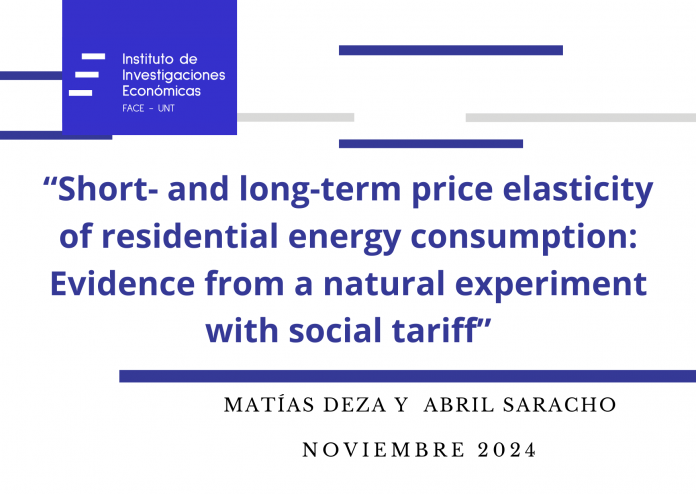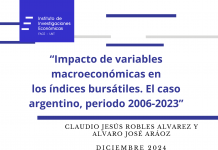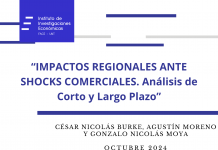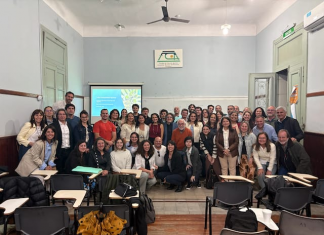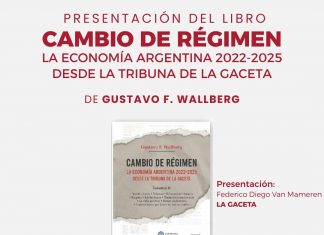Energy price elasticities for residential consumers is probably the most important variable to define policies regarding concerns about sustainability, efficiency and equitability.
However, estimating consumer response to price changes is complex due to simultaneous demand shocks, regulatory constraints and complex consumer response for this market.
This paper estimates the short- and long-term price elasticity of residential energy consumption through a natural experiment from the implementation of a Social Electricity
Tariff in Tucumán, Argentina. The policy, aimed at assisting vulnerable households,
provided a subsidy to the fixed charge of the electricity tariff but initially reached only
a small set of highly vulnerable users. A difference-in-differences approach is employed,
with low-income households initially not covered by the social tariff serving as the control
group. Our findings indicate that price elasticity is inelastic, with a more pronounced
effect among lower-consumption users. This study provides, to our knowledge, the first
quasi experimental estimate of short- and long-term price elasticity for Latin America,
offering valuable insights for the design of energy policies.
Keywords: Price elasticity, Residential energy consumption, Social Tariff, Energy
subsidy, Difference-in-Differences, Heterogeneous effects, Short- and Long-term.
JEL: C23, D12, H31, Q41, Q48.
Autores: Matías Deza y Abril Saracho
Directores: Alejandro Danon y Mariana Kestelman
Borges.


